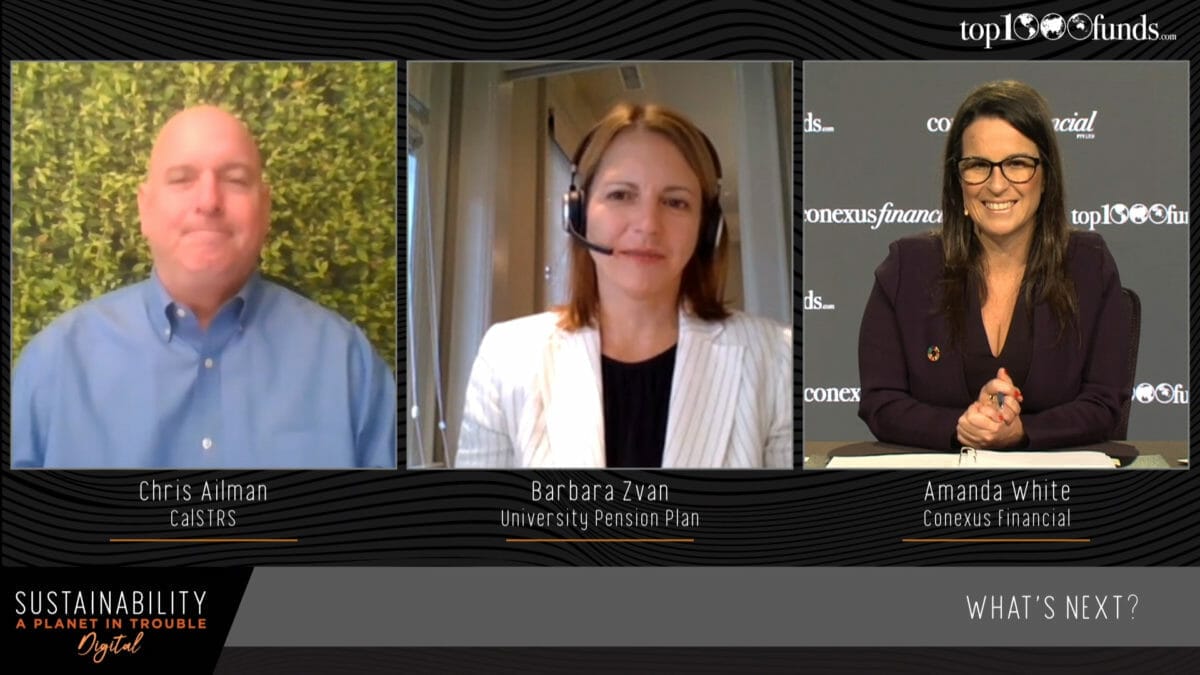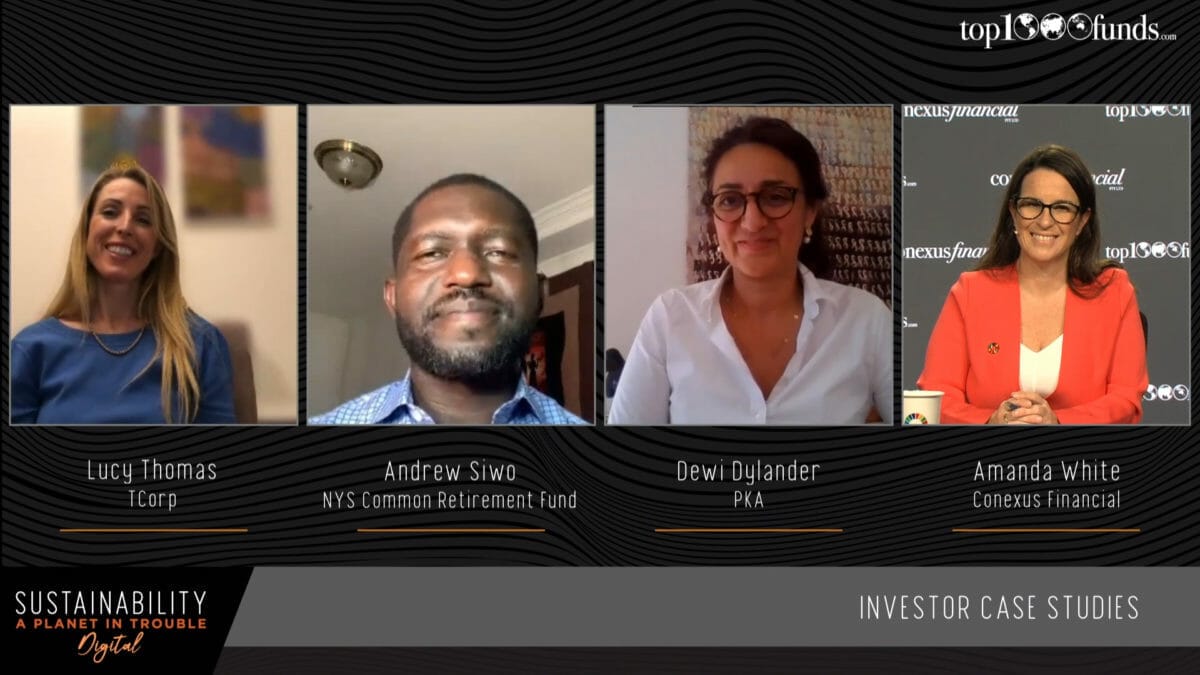One of the most important, upcoming challenges at CalSTRS is how the fund should evaluate Chinese investments from a human capital and environmental standpoint, said Chris Ailman, chief investment officer at the giant pension fund.
Speaking at Sustainability Digital he noted how ESG integration has evolved from divestment and screening to these kinds of new criteria. Now strategies have shifted away from traditional benchmarks to enhanced indexes and issues around human capital management, he said.
In another nod to asset owners’ need to adapt, Ailman noted how some assets currently in the portfolio may not transition to the “new economy” with consequences for internal teams.
He expressed his admiration for models whereby asset owners collaborate to form their own asset manager like Australia’s infrastructure investor IFM Investors. In a call for more syndications and networks, he said teaming together to bid on investment opportunities meant asset owners would be able to cut out costs. “Wall Street is too expensive,” he said.
Ailman noted that although sustainability is a core part of CalSTRS’ culture, there are many “laggards” both at home in the US and in other parts of the world.
He said America’s November election is revealing divisions in the US and only “some kind of shock” would wake people up to the reality of climate change. “Personal examples wake people up,” he said.
He also espoused the need for more regulation to force change.
“I am pushing a price on carbon,” he said. Regulations will cause pension funds to adjust their portfolios. He said there was a need to take issues out of the hands of politicians and talk about risk. For example, real estate managers needed to “pay attention” to the impact of storms and climate change on their portfolios.
Ailman urged more US pension funds to move on sustainability, calling the current cohort of sustainable investors “too narrow” a group.
“It needs to be a broader discussion with all pension plans,” he said.
While Dutch and Canadian funds “get it,” he said other parts of the world are not thinking about it.
“I am worried about the future; it is harder to make money and do it in the right way that is sustainable.”
Fellow panellist Barbara Zvan, president and chief executive of Canada’s University Pension Plan noted a key evolution at the pension fund was an expanded stewardship role to “help transition to a low carbon economy.”
The pension fund has an ESG framework that includes measuring carbon and setting meaningful targets across the portfolio.
She said that the investment industry is moving on sustainability and noted the growing recognition of what asset owners can achieve both individually but also collectively.
Urging cooperation, she said no one group can solve today’s challenges and that when asset owners tackle issues from climate change to diversity together, they have a bigger impact. She also noted how the private sector was a great source of industry and market insight.
“Governments’ role is much more in terms of instigation,” she said.
For all the conference sessions, stories and white papers visit the Sustainability content hub here.




